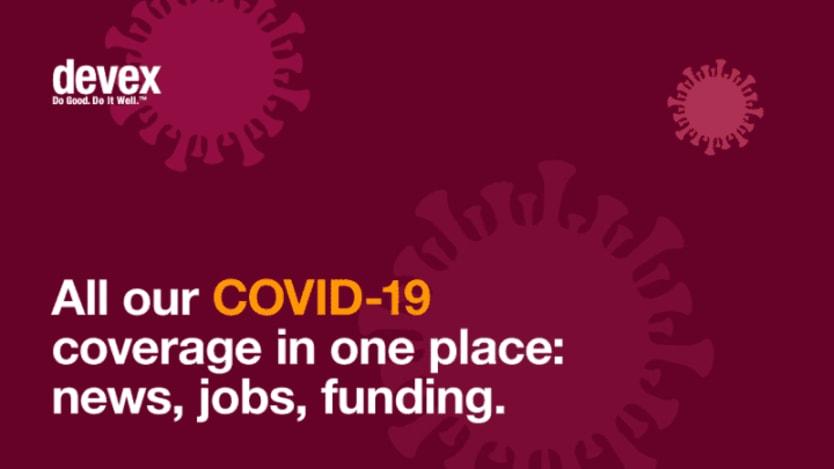
On Tuesday, Nigeria received 3.92 million doses of the COVID-19 vaccine developed by the University of Oxford and AstraZeneca. It is the first shipment for the over 16 million doses allocated to the country through the COVAX Facility, aimed at vaccinating 20% of the population.
Nigeria is expected to receive an additional 42 million doses of approved vaccines through the African Union’s African Vaccine Acquisition Task Team, but details on the timeline of shipments are not yet clear.
According to government officials, the received doses of the Oxford-AstraZeneca vaccine are undergoing final assessment by Nigeria’s National Agency for Food and Drug Administration and Control. While awaiting the conclusion of the review, health workers across the country will receive training on the vaccination exercise.
The first doses will be administered at a treatment center of National Hospital Abuja on Friday, and the nationwide vaccine rollout is set to commence March 12.
In a press statement, Thabani Maphosa, managing director for country programs at Gavi, the Vaccine Alliance, said, “Nigeria is amongst the first receiving the doses from COVAX, thanks to the excellent level of preparedness put in place by the Government of Nigeria.”
Despite this vote of confidence, public health experts and citizens in the country are worried that sparing, conflicting, and sometimes confusing information on the vaccine deployment will hinder the process.
Confusion over rollout
According to Tolu Ogunlesi, special assistant to the Nigerian president on digital and new media, Nigeria’s vaccine doses will be rolled out in four phases. The first recipients will be front-line health workers and strategic leadership, followed by individuals ages 50 years and above. The third phase will cover individuals ages 18 to 49 with relevant medical conditions, while the last group will be the remaining eligible population, which is made up of individuals ages 18 to 49 without relevant medical conditions.
While the Nigeria Centre for Disease Control has been in charge of Nigeria’s coronavirus response in the areas of testing, communication, and surveillance, the task of coordinating vaccination rests squarely on the National Primary Health Care Development Agency.
Following the announcement late Sunday evening that the COVID-19 vaccine would arrive Tuesday, NPHCDA on Monday shared a link to a website where citizens are expected to book their vaccination appointments.
Despite the outlined phases, Devex found that there are no restrictions around the vaccination dates available to different population groups or around who is able to register. The registration process also does not provide any means for the government to verify those claiming to be front-line workers.
Samuel Eleko, a 46-year-old university lecturer who has used the platform, described the open registration process as potentially disenfranchising those who should be prioritized and ensuring the phased approach fails. He noted that young people are more likely to register online than older adults, who have been identified as a priority population.
“By registering online, you [the Nigerian government] will distribute the few [vaccines] you get to the less vulnerable group, and the problem will just begin from there. When other countries would say bye to COVID, Nigeria will be looking for help,” Eleko said.
In addition, a week before the vaccination exercise’s expected initiation, officials at some centers listed on the website said they were not aware of their locations serving that purpose.
Monatan Primary Health Center in Ibadan, southwestern Nigeria, is included among the vaccination sites on the government’s website. But when Devex visited the center late Monday, officials on duty said they were not aware of any COVID-19 vaccination plans at the location.
“Nobody has told us anything, but we will not be surprised if they bring it [the vaccine] tomorrow and ask us to start giving people that same day,” said an official who asked to remain anonymous.
Unfulfilled promises
Prior to Tuesday’s delivery, NPHCDA’s messaging on the country’s vaccine plans had largely been characterized by unfulfilled promises.
On Feb. 8, it issued a statement saying the country would receive 16 million doses of COVID-19 vaccines in the month of February. However, the month ended with no delivery.
While commending Nigeria’s epidemiologic response to COVID-19, Dr. Ifeanyi Nsofor, CEO at Nigeria-based health consultancy EpiAFRIC, said the details surrounding vaccinations had been characterized by uncertainty and urged the government to be more open.
“I think part of the responsibility of the government is also for the minister [of health] and the head of the NPHCDA to be open with Nigerians,” Nsofor said. “If they're having challenges securing the vaccines, in bringing them in, they should let us know.”
For over one month, Devex reached out to the team at NPHCDA, requesting specific details on the country’s COVID-19 vaccination plans. These were not provided, and an official at the agency told Devex that the requested information did not exist.
This is in sharp contrast to Ghana, where vaccinations have already begun. Speaking at a press conference, Dr. Franklin Asiedu-Bekoe, Ghana’s director of public health, said the country had finalized its national COVID-19 vaccination plan and secured indemnity legislation from the Justice Ministry by mid-December. The government had also publicized the regions where its first 600,000 doses would be allocated.
“Nigerians must continue to take steps to contain the virus, as the vaccination program will take at least a year before it is fully effective.”
— Dr. Walter Kazadi Mulombo, WHO representative to NigeriaCautiously optimistic
Despite the challenges, Jafiya Abubakar, head of epidemiology at the Nigeria Centre for Disease Control, said that Nigeria’s vast experience in initiating and coordinating extensive vaccination efforts will result in a successful campaign.
“Thanks to the experience the country has had with previous vaccination efforts, the structure and network are there and will come in handy for the COVID-19 vaccination exercise,” he said.
But other public health experts are setting targets cautiously. Dr. Walter Kazadi Mulombo, the World Health Organization’s representative to Nigeria, warned that effective measures currently utilized in the pandemic should not be abandoned yet.
“Vaccines are a critical tool in the battle against COVID-19. In the meantime, Nigerians must continue to take steps to contain the virus, as the vaccination program will take at least a year before it is fully effective,” he said.
Considering the circumstances surrounding COVID-19 vaccinations, Nsofor added, it may be almost impossible for Nigeria and the entire African continent to stop the health crisis and achieve herd immunity before 2024.
“It will not end this year. I don't see African countries as a whole achieving herd immunity before 2023-2024 — let’s be honest about it,” he said.

Search for articles
Most Read
- 1
- 2
- 3
- 4
- 5








